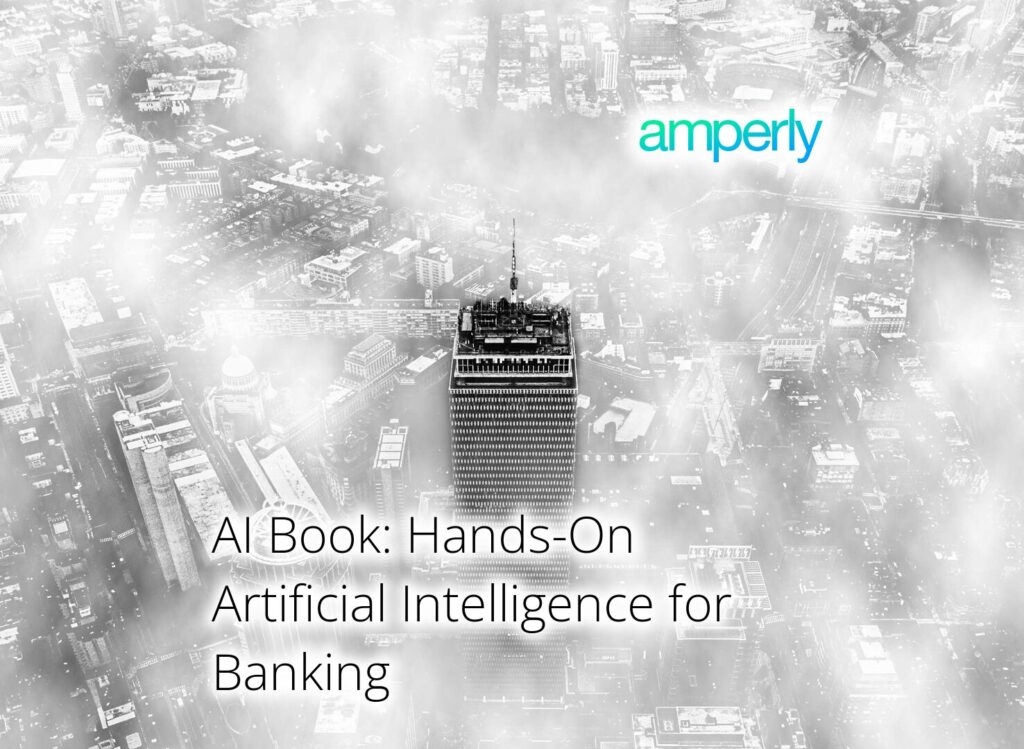Applications of AI in banking are transforming how you interact with customers and manage operations. From enhancing customer service to boosting security, AI is making your work more efficient and effective. Ready to dive into how AI can make your banking experience better?

You can discover more about specific AI tools that can boost your business productivity here AI tools for business. You can learn more about how AI affects fraud detection in banking by visiting this link AI in fraud detection.
AI in Customer Service Enhancement
AI in Customer Service Enhancement: AI-powered chatbots are your go-to solution for providing 24/7 customer support. They can reduce response times significantly, making interactions smoother. A report shows that chatbots can manage over 50 million client requests in a year.
Cybersecurity and Fraud Detection: AI plays a critical role in enhancing cybersecurity measures in banking. Machine learning algorithms can analyze transaction patterns in real-time to detect fraudulent activity. In fact, the financial sector was responsible for 29% of all cyber attacks in 2019, highlighting the pressing need for effective AI applications in banking to improve safety and security.
AI in Fraud Detection and Cybersecurity
AI in Fraud Detection and Cybersecurity: AI technologies play a crucial role in fraud detection and cybersecurity by analyzing transaction data for unusual patterns. In fact, the financial sector accounted for 29% of all cyber attacks in 2019, making robust AI applications essential. By utilizing AI, banks can significantly minimize financial losses and enhance customer trust.
AI’s Role in Customer Experience and Personalization: The applications of AI in banking have dramatically improved customer interactions by providing personalized recommendations and support. Nearly 80% of banks recognize the potential of AI to enhance customer experiences. This level of personalization not only engages customers but also creates a foundation for long-term relationships with your bank.
AI for Loan and Credit Assessment
AI for Loan and Credit Assessment: AI leverages unconventional data sources to evaluate creditworthiness more accurately. This approach minimizes bad loans, contributing to a potential financial impact in the billions for banks. Engaging in the applications of AI in banking like this can lead to streamlined processes that enhance efficiency.
Fraud Detection and Cybersecurity: AI technologies are essential in identifying fraud and protecting customer data in real-time. The financial sector is a prime target for cyber threats, with 29% of all attacks focusing on this industry, underscoring the need for robust defenses. Incorporating applications of AI in banking like machine learning for fraud detection helps mitigate these risks efficiently.
AI in Data Collection and Analysis
AI in Data Collection and Analysis: AI automates how banks process vast amounts of customer and market data. By enabling data-driven decision-making, it helps banks gain insights into customer behavior and market trends, offering a competitive advantage. Since nearly 80% of banks recognize the potential of AI in banking, it’s crucial to effectively implement these technologies to maximize benefits.
Enhanced Fraud Detection: AI is pivotal in identifying and preventing fraudulent activities in real time. With machine learning algorithms analyzing transaction patterns, banks can swiftly detect unusual behaviors and minimize financial losses. In fact, AI has boosted fraud detection capabilities for institutions by up to 50%, emphasizing the value of its applications in banking.
AI in Regulatory Compliance
AI’s Role in Regulatory Compliance: AI streamlines compliance by automating the monitoring of complex regulations like KYC and AML. This approach enhances transparency and accuracy in reporting, significantly reducing the risk of regulatory fines—one of the main benefits from using applications of AI in banking. With over 29% of all cyber attacks targeting the financial sector, improving compliance processes is crucial to maintaining trust and security.
AI for Fraud Detection: AI technology enables banks to identify fraudulent transactions in real-time by analyzing transaction patterns and customer behavior. This capability dramatically lowers financial losses due to fraud, which is vital as AI applications in banking help enhance security measures. Implementing powerful detection systems boosts a bank’s operational resilience against a backdrop where cyber threats accounted for 29% of all such incidents in 2019.
AI-Driven Personalization Strategies
AI-Driven Personalization Strategies: With algorithms analyzing customer data, banks can deliver personalized financial recommendations and services that meet individual needs. Personalized marketing campaigns can increase customer engagement by up to 80%. By integrating these applications of AI in banking, your bank can drive customer loyalty and enhance overall satisfaction.
AI’s ability to tailor experiences reflects a shift towards customer-centric banking. This transformation isn’t just about technology; it’s about creating meaningful connections with clients. So, how does your bank currently personalize services?
Enhanced Fraud Detection Capabilities: AI’s role in fraud detection is vital for minimizing financial losses. Machine learning algorithms can analyze transaction patterns in real-time, identifying anomalies that could indicate fraud. The financial sector experienced a staggering 29% of all cyberattacks, emphasizing the need for robust security through applications of AI in banking.
This not only safeguards customer accounts but also builds trust in your institution. The ability to quickly detect and respond to fraudulent activities can protect your bank’s reputation. What measures does your bank currently use for fraud detection?
AI in Risk Management
AI in Risk Management: Predictive analytics powered by AI enhances risk profiles, allowing you to make better financial decisions. This capability is crucial because approximately 80% of banks recognize the potential of AI in banking. By using these applications, you can stay ahead in risk monitoring and improve operational resilience.
Fraud Detection and Prevention: AI-driven systems automatically analyze transaction patterns to identify fraud efficiently. A report highlights that financial services accounted for nearly 29% of all cyber attacks in 2019, showing how vital it is to bolster your defenses. By leveraging applications of AI in banking, you can significantly reduce losses tied to fraudulent activities while protecting your customers’ accounts.
Generative AI Applications in Banking
Generative AI Enhances Model Accuracy: Generative AI creates synthetic data for training purposes, which improves model accuracy without leaking sensitive information. In fact, nearly 80% of banks recognize its potential to elevate service standards. By integrating applications of AI in banking, you can foster data-driven insights that pave the way for improved customer experiences.
AI Improves Customer Interactions: Innovative customer communications generated by AI enhance the quality of interactions. By leveraging these technological solutions, banks can expect to see customer satisfaction levels rise significantly. The applications of AI in banking not only streamline customer service, but they also contribute to building long-term relationships with clients.
AI for Operational Efficiency
AI for Operational Efficiency: AI-powered systems automate repetitive tasks, boosting productivity across banking operations. In fact, nearly 80% of banks recognize the potential benefits of AI-driven automation. This shift allows employees to focus on higher-value activities that drive revenue and improve service quality.
Cybersecurity and Fraud Detection: The banking sector faces increasing threats from cybercrime, making robust fraud detection crucial. Research indicates that in 2019, the financial sector accounted for 29% of all cyberattacks, the highest of any industry. By employing AI to proactively monitor and analyze transaction patterns, banks can bolster defenses and reduce financial losses significantly.
Challenges in AI Adoption in Banking
Data security concerns regarding the handling of sensitive customer information require stringent protective measures: As banks increasingly adopt applications of AI in banking, they become targets for cyber threats due to the large amounts of sensitive customer data processed. In fact, in 2019, the financial sector accounted for 29% of all cyber attacks, highlighting the urgency for enhanced security protocols. Investing in advanced cybersecurity systems and regularly conducting security audits is essential for protecting customer trust and maintaining compliance.
The need for high-quality data and explainability in AI models poses significant hurdles for effective implementation: Ensuring the accuracy and effectiveness of AI applications in banking hinges on the availability of high-quality data, without which predictions risk inaccuracy. Around 60% of financial services companies have implemented at least one AI capability, signaling a growing reliance on this technology despite the challenges. Prioritizing data quality initiatives, like data cleansing and enrichment, can help banks improve the reliability of their AI outputs and foster better decision-making.
Artificial Intelligence Services
Banking is evolving fast, thanks to artificial intelligence (AI). With AI, banks enhance customer service, improve security, and make smarter lending decisions. Let’s look at three of the most important AI services that can transform your bank’s operations.
AI in Customer Service Enhancement AI-powered chatbots deliver 24/7 customer support, making it easier for clients to get help whenever they need it. These chatbots speed up response times and create personalized interactions, which boost customer satisfaction. If you’re interested in how personalized interaction can enhance your service, check out these AI services.
AI in Fraud Detection and Cybersecurity Machine learning algorithms analyze transaction patterns to spot and stop fraud in real-time. This continuous monitoring strengthens your defenses against growing cyber threats, helping prevent financial losses. For more on how client feedback can shape fraud detection, see our case studies using AI and client feedback.
AI for Loan and Credit Assessment AI helps banks assess creditworthiness more accurately by using unconventional data sources. This means fewer bad loans and faster approval times, improving the overall customer experience. To learn how dynamic product descriptions can facilitate the lending process, visit our dynamic product descriptions page.
You can explore more effective strategies for enhancing customer support with AI here AI in banking customer service.
Boost Your Bank’s AI Game Today!
Take action to improve how your bank uses AI. First, review your current AI applications in customer service and fraud detection. Identify gaps and areas for improvement to enhance efficiency and customer experience. Second, engage with your team about the potential of generative AI for operational tasks. Spark a conversation on how these technologies can streamline processes at your bank.
If you want to boost your bank’s AI capabilities, let’s connect.

